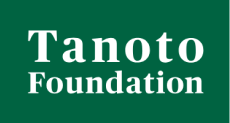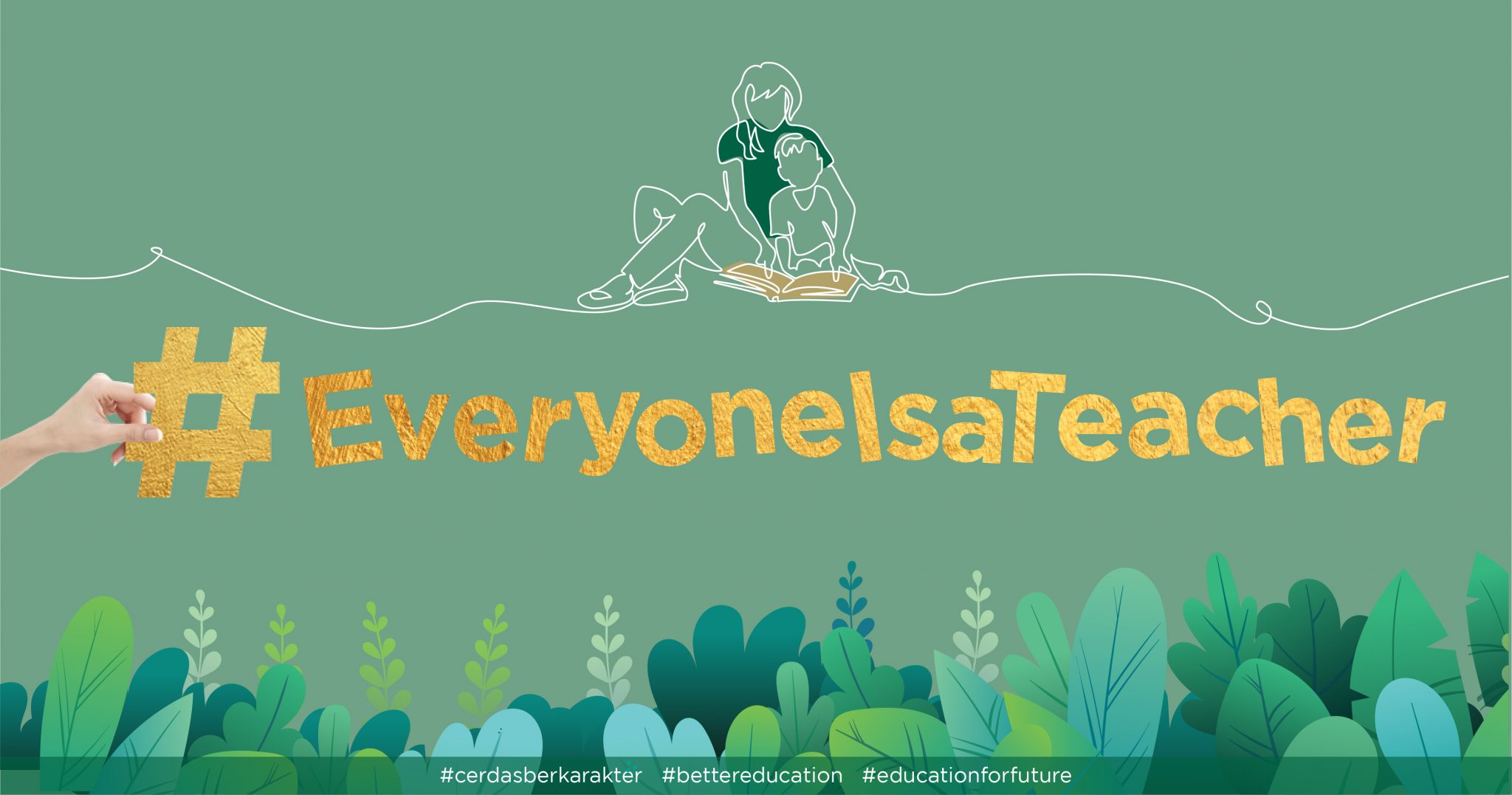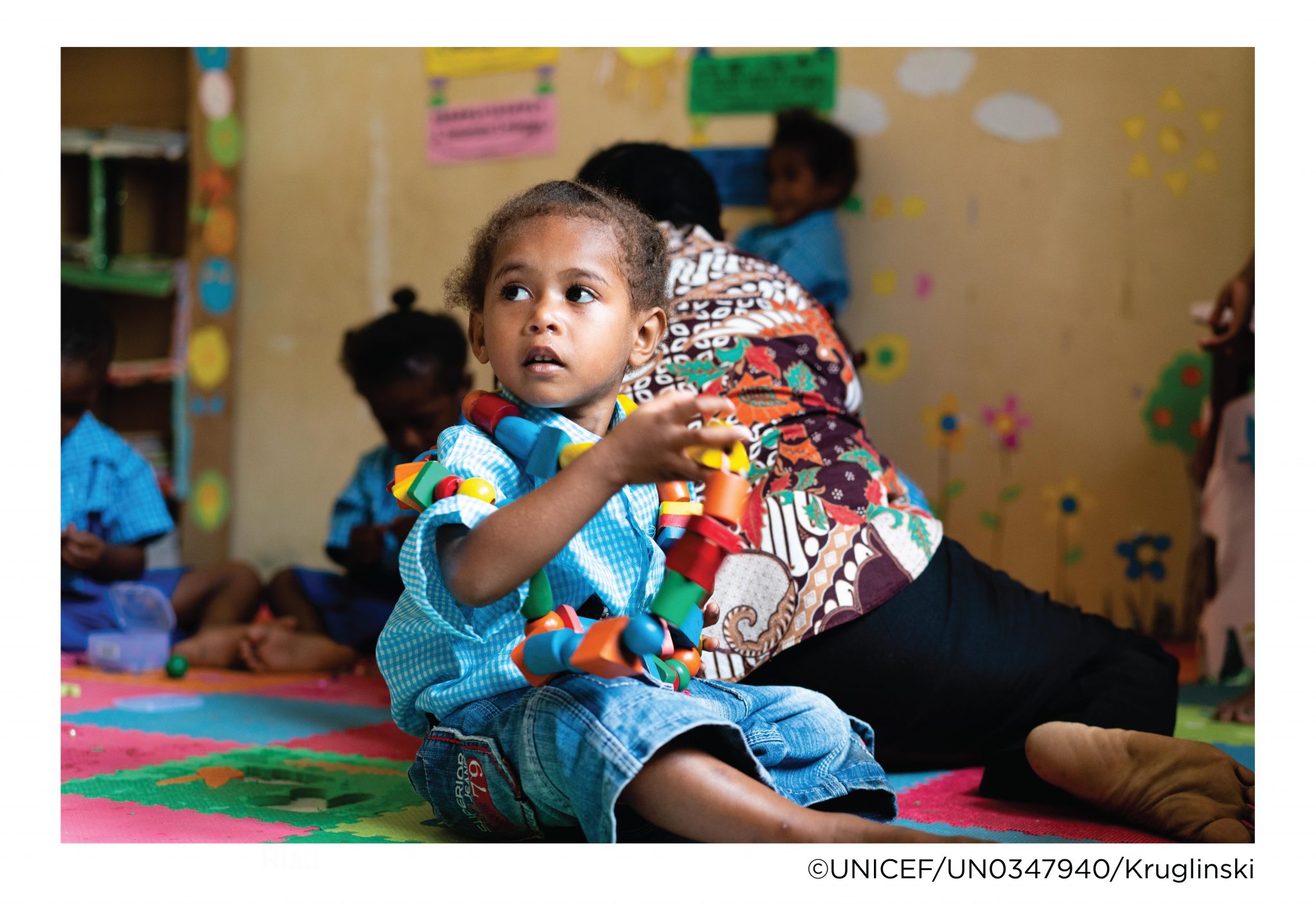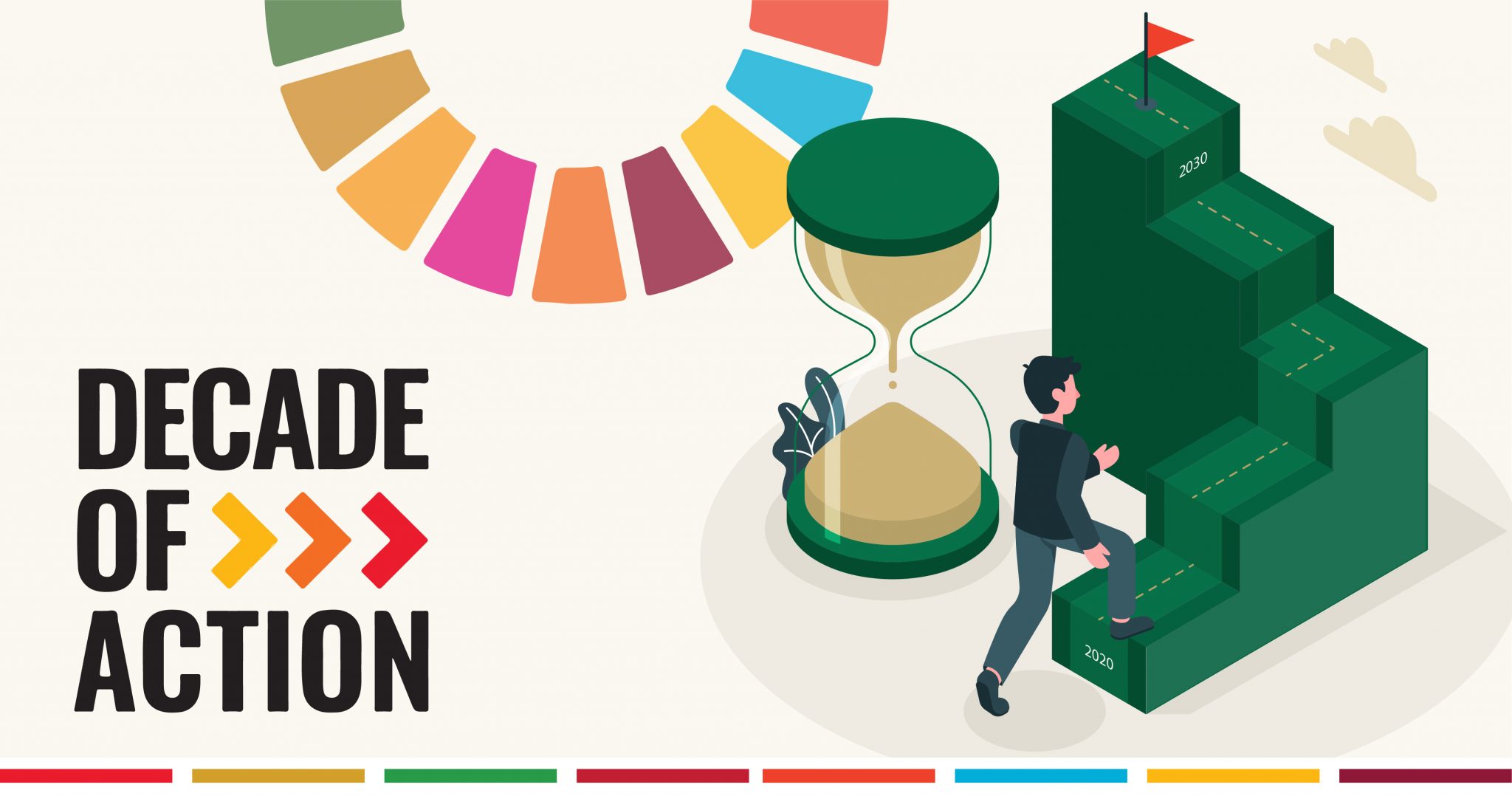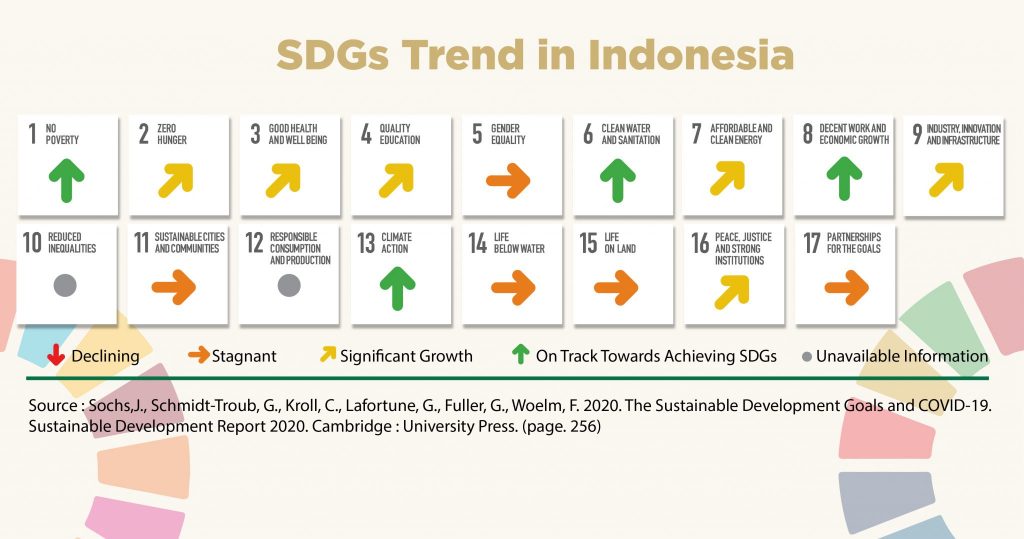Before the morning bell rings, students at SDN V SDN 30 Wirotho Agung, Jambi, gather in the school yard, holding reading books. Some sit in groups, some line up neatly on park benches.
Aldi, one of the students, stands in front of his group and reads a story. His friends listen attentively. Aldi recounts from the book he just read. His friends look on seriously, listening and absorbing the information he conveys.
In another place, Sumaryati, a housewife in rural Wonogiri, Central Java, is following creative lessons delivered by teachers at her child’s school. As a parent, Sumaryati felt the need to study again so that she could guide her child to study at home during the pandemic. Parents learn from teachers, and children learn at home with parental guidance.
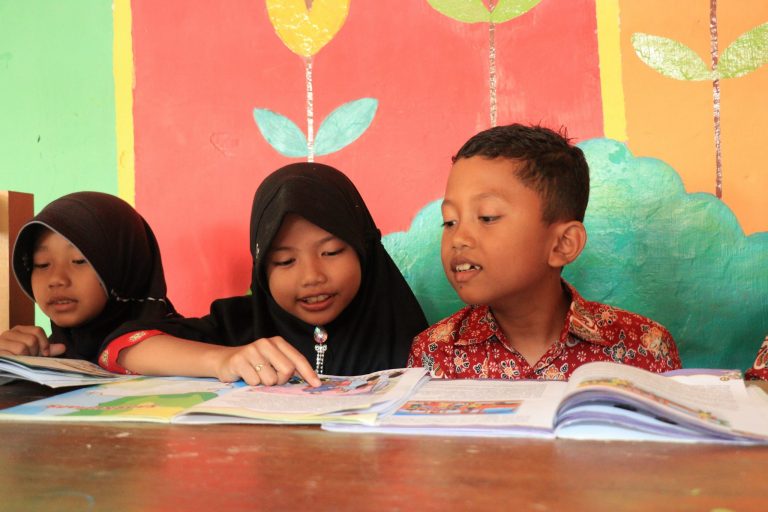
These activities illustrate that quality learning does not have to be in the classroom and in formal schools. Everyone can act as both teacher and student, regardless of age, profession, or social strata.
This is in line with one of the points in the 2013 Curriculum (K-13) in the Indonesian education system: that anyone is a teacher, anyone is a student, and anywhere is a class.
In line with the government policy promoting Freedom of Learning (Merdeka Belajar), where students are given the opportunity to learn freely by paying attention to their talents, without stress and pressure, the concept of “everyone is a teacher” is very relevant.
Students can learn from a variety of sources: not only from teachers, but from people in their environment, from their friends, from books, and from the internet. Learning does not have to be in the classroom: it can also be in the fields, in the garden, in the courtyard, and so on.
Who is a teacher?
According to Law No. 14 of 2005, teachers are professional educators with the main task of educating, teaching, guiding, directing, training, assessing, and evaluating students throughout their formal education.
In practice, the responsibility to educate does not rest solely on the shoulders of a teacher. Each person has a role to play to provide Indonesian children with quality learning so that they can improve their lives in the future, as well as compete at the global level.
Teachers are not only responsible for teaching specialist subjects, but also to help develop the morals, ethics, integrity, and character of students. And these are all areas where anyone – not just teachers – can help.

Tanoto Foundation support
Through the PINTAR program, Tanoto Foundation, an independent family philanthropy organisation founded by Sukanto Tanoto and Tinah Bingei Tanoto in 1981, trains teachers, school principals, and lecturers of the LPTK (Educational Personnel Education Institute) to develop good practice in learning, including active learning and learning with the MIKiR (experiencing, interaction, communication, and reflection) concept.
This program not only fosters creativity among teachers, but also spreads best practices to schools, teachers, parents and the community around the school so that they can jointly apply this model in an effort to improve quality of education.
November marks National Teacher’s Day, so Tanoto Foundation is carrying out the ‘everyone is a teacher’ campaign with the aim of appreciating the work of teachers and the broader community in educating Indonesian children. Keep up with our posts on all Tanoto Foundation social media channels.

